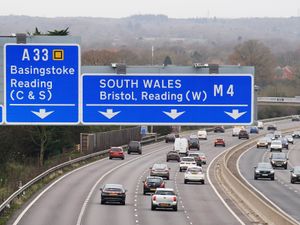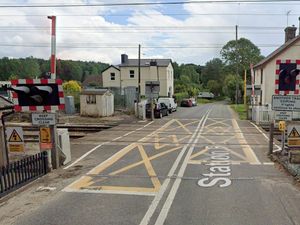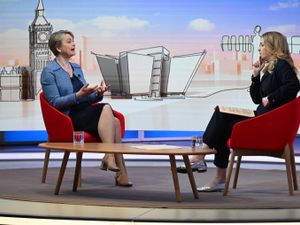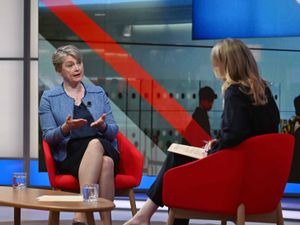Foster denies sectarianising Stormont’s response to Covid-19
Appearing at the Covid-19 Inquiry, the former first minister was pressed on her party’s use of a controversial veto mechanism during the pandemic.
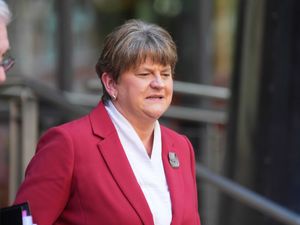
Former Northern Ireland first minister Baroness Arlene Foster has denied “sectarianising” Stormont’s response to the Covid-19 pandemic by deploying a controversial veto mechanism to prevent the extension of restrictions.
Giving evidence to the Covid-19 Inquiry in Belfast, the former DUP leader conceded the row in November 2020 marked a “low point” in the Executive’s handling of the pandemic and she acknowledged the use of the cross-community vote damaged public confidence.
The controversy unfolded during a series of back-to-back Executive meetings across four days, which saw all the other parties in the devolved coalition administration push for a two-week circuit breaker extension to restrictions, as recommended by health officials.
However, the DUP, which was concerned about the economic effect of continued closures of close-contact services and coffee shops, deployed the veto mechanism to stop the majority opinion from holding sway.
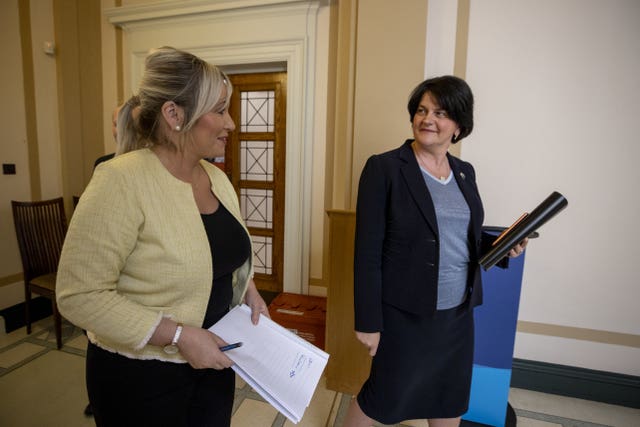
The other parties heavily criticised the use of the cross-community vote, which was designed during the peace process to protect minority interests, in the context of a health emergency.
On Wednesday, Lady Foster defended using the mechanism, insisting Sinn Fein had also triggered it in the past on issues that were not “constitutional” in nature.
During her evidence to the inquiry, the former first minister also:
– Described how she felt personally upset by the attendance of then deputy first minister Michelle O’Neill at the large-scale funeral of veteran republican Bobby Storey despite lockdown restrictions.
– Said no other DUP ministers agreed with a claim made by former Stormont minister and party colleague Edwin Poots that Covid-19 was more prevalent in nationalist areas in Northern Ireland.
– Expressed “great regret” that Stormont did not anticipate the speed with which the Covid-19 pandemic spread.
– Acknowledged a political row over the closure of schools in Northern Ireland at the outset of the pandemic reflected very badly on the Executive.
– Branded “offensive” the suggestion that Northern Ireland had “sleepwalked” into the pandemic.
In regard to the cross-community veto episode, Lady Foster accused Ms O’Neill, who was chairing the relevant Executive meetings, of forcing the issue of extending restrictions to a vote among ministers, rather than trying to seek consensus through negotiations.
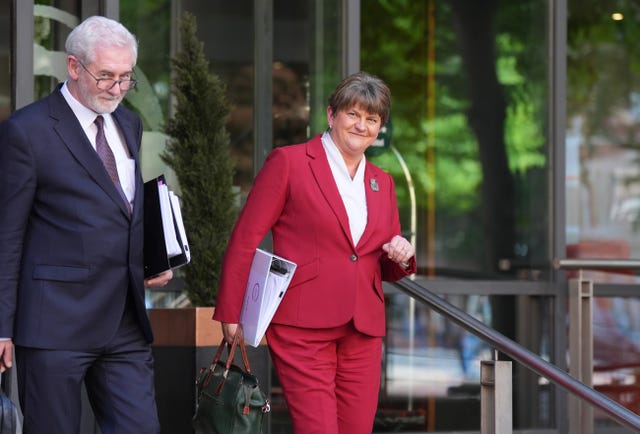
Lead counsel to the inquiry, Clair Dobbin KC, asked the baroness if she accepted that the DUP’s use of the mechanism “sectarianised effectively the most pressing and critical of issues, going to the health and the life of people in Northern Ireland”.
“I don’t accept that it sectarianises it because it’s a mechanism that’s been there since 1998 (Good Friday Agreement) for key decisions,” the former DUP leader replied.


